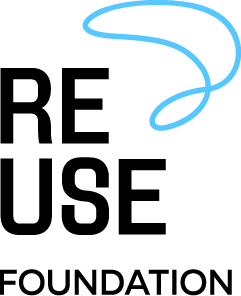Featured
GROWING ALARM ABOUT IMPACT OF PLASTICS UNDERSCORES NEED FOR PRACTICAL SOLUTIONS |
|
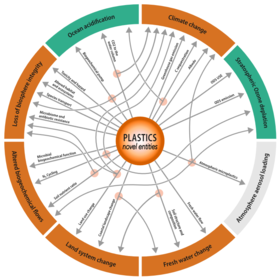
|
As the amount of plastic in the environment grows – one study finds a growing “plastic smog” of 170 trillion particles afloat in the ocean – scientists are starting to realise it is not as safe and inert as once thought. A report by Stockholm Resilience Centre points out that most plastics are made up of thousands of different chemicals. many of which, such as endocrine disruptors and forever chemicals, pose toxicity and harm to ecosystems and human health.
Looking at interactions between plastics and environmental boundaries, scientists now believe plastic pollution is changing Earth’s entire ecosystem, affecting the climate, biodiversity, use of freshwater and land, ocean acidification and human health. Clearly, we need to get moving. In addition to meaningful regulation, we need investment in solutions that work. And especially reuse, since it’s the one that can most quickly bring near-term change. Let’s get to work![Image Credit: © Stockholm Resilience Centre] |
Highlights
Refill Pouches Are Not the Plastic-Free Solution We Need |
|
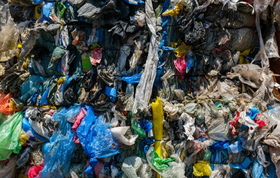
|
Refill pouches, often marketed as eco-friendly, may worsen the plastic waste problem, according to an article from The Powder Shampoo, a powder-to-foam personal care products company. It argues that the pouches are made from non-recyclable multi-layer plastics, leading to more landfill waste. Despite claims of sustainability by brands like Unilever and Procter & Gamble, refill pouches often contain virgin plastic and have a limited lifespan. [Image Credit: © Engin Akyurt on Unsplash]
|
US Retreats From Stronger Global Plastic Production Limits |
|
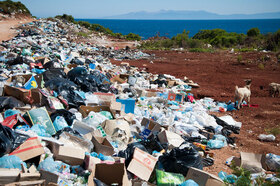
|
At the recent United Nations global plastics treaty negotiations in South Korea, the US reversed earlier support for limits on global plastic production, shifting toward a more flexible, voluntary approach, disappointing environmental advocates who argue that voluntary targets will not sufficiently reduce plastic pollution. Some countries and many environmental groups are calling for stricter limits to curb the escalating plastic crisis, warning that without such measures, plastic waste will continue to accumulate in ecosystems and contribute to climate change.[Image Credit: © Antoine GIRET on Unsplash]
|
Supermarkets To Boost Refill And Reuse Efforts |
|
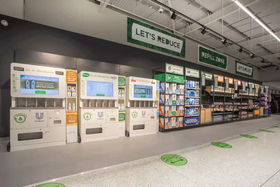
|
A new phase of the UK’s Plastics Pact will push supermarkets to expand refill and reuse options in a bid to reduce plastic waste. Despite past challenges with consumer participation and trial setbacks, including store closures and low engagement, retailers are encouraged to ramp up efforts, with new targets for 2025 and beyond. The initiative aims to help achieve the UK’s plastic reduction goals, including moving 30 percent of supermarket product sales to reusable or refillable packaging by 2035.[Image Credit: © ASDA]
|
Plastic Waste Alliance Fails To Reduce Pollution Impact |
|
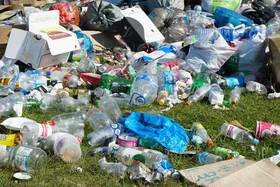
|
A recent analysis revealed that five major companies behind the Alliance to End Plastic Waste have produced more than 1,000 times the amount of plastic waste they’ve removed from the environment. These companies, including ExxonMobil, Shell and Dow, together produced 132 million tonnes of plastic between 2019 and 2023. [Image Credit: © Ariungoo Batzorig on Unsplash] |
Material Science Innovations Help Tackle Packaging Waste |
|
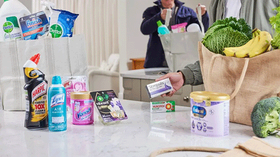
|
Martin Settle, Senior Manager of Polymer Science in Sustainability and Packaging at Reckitt, says innovation, including in packaging, often takes years of research and testing to produce the best. Small molecular changes can lead to more sustainable materials for packaging, emphasizing the importance of practical, cost-effective solutions. Innovations like biopolymers are considered promising for certain applications, though potential limitations, such as recyclability and environmental impact, are critical. Companies are also investigating alternative materials like chitosan derived from crustacean shells. A key challenge remains balancing environmental benefits with consumer and market demands.[Image Credit: © Reckitt Benckiser Group PLC]
|
SC Johnson Advances Global Plastic Waste Reduction Efforts |
|
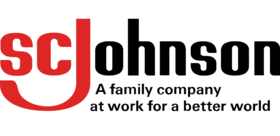
|
SC Johnson showed progress in reducing plastic waste, according to the latest Global Commitment 2024 Progress Report from the Ellen MacArthur Foundation and UN Environment Programme. It has met its virgin plastic reduction goal a year ahead of schedule, cutting its plastic footprint by 32%, and surpassed its target for incorporating recycled materials into packaging. 12 percent of its packaging is designed for reuse. SC Johnson emphasizes the need for government regulation to help drive further progress, highlighting the forthcoming talks towards a global plastics treaty.[Image Credit: © SC Johnson/PRNewswire]
|
Wales Develops Own Deposit Return Scheme |
|
.png?width=280)
|
Wales will implement its own deposit return scheme for bottles and cans, diverging from the UK-wide initiative set to launch in 2027. Unlike England, Scotland and Northern Ireland, Wales will delay its scheme, citing challenges over including glass, which UK ministers opposed. Welsh ministers argue that reusing glass would reduce energy and carbon costs, while industry groups worry about increased costs and consumer confusion and would prefer glass to continue to be included in household recycling collections. Critics warn against disruption caused by differing policies between nations, which could complicate cross-border trade and undermine a unified approach to tackling plastic waste.[Image Credit: © Karolina Grabowska from Pexels.xom]
|
Court Stops France’s Plastic Packaging Ban For Fresh Produce |
|
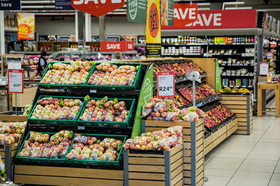
|
France’s highest court, The Conseil d’Etat, annulled a decree banning plastic packaging for fruit and vegetables, issued in June 2023. The ruling followed a request from the EU to delay national regulations until a unified EU-wide regulation on packaging restrictions was established. Siding with industry groups, the court stated that France’s ban conflicted with ongoing EU efforts to standardize packaging rules. EU regulations, which aims to curb plastic waste, will be fully implemented by 2030, after the European Council’s formal approval.[Image Credit: © Pixabay on Pexels.com]
|
P&G Launches LaserSharp Marking For Sustainable Label-Free Packaging |
|
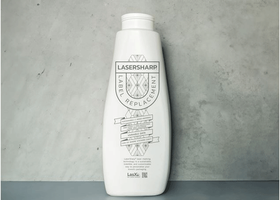
|
Procter & Gamble partnered with LasX Industries on LaserSharp Marking, a laser-based technology that eliminates the need for traditional labels, adhesives and inks. It prints directly on packaging materials, reducing waste and enhancing sustainability by removing unnecessary components like shrink film and pressure-sensitive adhesives. LaserSharp offers high-speed, high-resolution printing and 360-degree marking, and enables faster updates to packaging in response to product or regulatory changes. [Image Credit: © LasX Industries, Inc.]
|
Summit Finds Key Barriers To Scaling Reuse Systems |
|
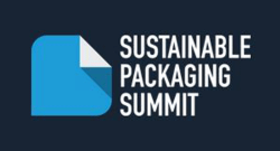
|
At the Sustainable Packaging Summit in Amsterdam, experts discussed the challenges and opportunities in scaling reuse systems. Major barriers include unclear legal frameworks, lack of consumer engagement and the absence of standardized systems. Unilever’s Holly Nelson emphasized the importance of incentivizing consumers, noting that 50 pilot projects globally found consumer participation to be crucial. The need for standardized definitions, labels and data sharing was also highlighted. Successful examples included Unilever’s OMO brand in Latin America and a waste bank project in Indonesia, while lessons from less successful trials revealed issues with consumer adoption. [Image Credit: © Packaging Europe Ltd part of Rapid News Communications Group]
|
Americans Support Recycling But Struggle With Confusion, Anxiety |
|

|
A new survey found 87 percent of Americans support recycling, but confusion over rules and limited infrastructure hinders efforts. One in three consumers are anxious over concerns they aren’t recycling properly, especially Gen Z (42 percent) and Millennials (42 percent). Over 40 percent admitted to discarding recyclables to avoid mistakes. Despite a strong belief in recycling’s environmental benefits, only 32 percent of waste is recycled nationally, experts stress the need for clearer guidelines and more accessible recycling infrastructure to improve participation and efficiency in waste reduction.[Image Credit: © Keep America Beautiful]
|
Study Reveals Obstacles To Effective UK Plastic Recycling |
|
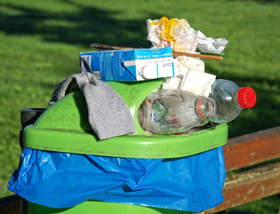
|
A Lancaster University study, Plastic Packaging in People’s Lives (PPiPL) project, reveals many UK households engage in “wishcycling”, placing items in recycling bins without knowing they are recyclable. It stems from confusing product labels and inconsistent local recycling rules. The study found that while UK residents care about reducing plastic waste, they often struggle with contamination and lack of engagement. Researchers recommend simplifying recycling processes with standardized collection services and clearer labelling and highlight the need for better consumer education on sorting, washing and properly disposing of plastics to improve recycling efficiency and reduce waste.[Image Credit: © Manfred Antranias Zimmer from Pixabay]
|
M&S Expands Beauty Takeback Scheme |
|
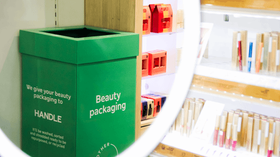
|
Marks & Spencer expanded its Beauty Takeback Scheme to 100 stores across the UK, doubling its footprint. Launched in June 2023, it allows customers to recycle any plastic or aluminum beauty packaging from any retailer. It has already processed over 1.6 tonnes of packaging. As part of its ongoing partnership with HANDLE, M&S has also introduced a hair comb made from 98% recycled packaging from the scheme. [Image Credit: © Marks and Spencer Group plc]
|
HUL Launches Circular India Toolkit To Promote Circularity |
|
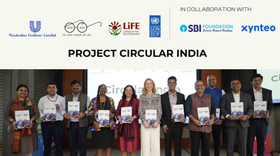
|
Hindustan Unilever Limited launched its Circular India toolkit, aimed at accelerating plastic waste circularity in line with India's Viksit Bharat Vision. Developed with support from UNDP India and Xynteo, it compiles insights from HUL’s six-year experience in circular models and industry best practices and offers actionable solutions for waste management, focusing on multistakeholder partnerships, robust infrastructure, behavior-driven communication, social inclusion of informal waste workers and citizen action. [Image Credit: © Unilever]
|
UK Government Event Highlights Need For Global Plastics Treaty |
|
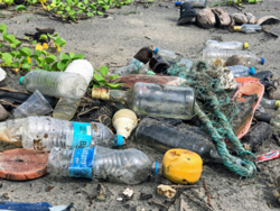
|
On November 6, the UK’s Department for Environment, Food and Rural Affairs held a roundtable with businesses and environmental leaders to discuss priorities for the upcoming Intergovernmental Negotiating Committee's fifth session (INC-5) on a global plastics treaty. Co-chaired by Defra Secretary Steve Reed and the Ellen MacArthur Foundation, the meeting emphasized establishing international rules and financial support to tackle plastic pollution, especially for countries in the Global South. Companies including Tesco, Unilever and Mars signed a joint statement calling for a strong, actionable treaty, while WRAP CEO Harriet Lamb highlighted the need for enforceable global regulations and funding for sustainable infrastructure. [Image Credit: © John Cameron on Unsplash]
|
UK Regulator Closes Investigation Into Unilever’s Green Claims |
|
.png?width=280)
|
The UK Competition and Markets Authority closed its investigation into concerns that Unilever potentially overstates the environmental benefits of some products, particularly in packaging. The probe focused on claims made about the "green" nature of brands including Dove and Lynx, and whether imagery, such as green leaves, misled consumers into thinking products were more eco-friendly than they were. The CMA noted improvements in the industry, with Unilever making changes to its claims and packaging, contributing to the decision to close the investigation. [Image Credit: © Unilever] |
Henkel And GIZ Collaborate To Improve Packaging Recycling |
|
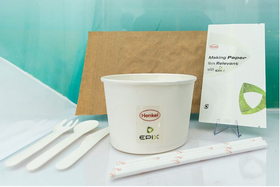
|
Henkel and the German Agency for International Cooperation launched the "Reinventing Packaging" project to address plastic waste through better recycling practices, particularly focusing on flexible packaging. Showcased at the China International Import Expo, it aims to improve packaging waste management by promoting eco-design and implementing extended producer responsibility. Pilot projects in Suzhou and Xiamen increased plastic packaging recycling rates to over 50 percent. The project also explores new packaging solutions, such as Henkel's full-paper cushioning for e-commerce deliveries.[Image Credit: © Henkel (China) Investment Co., Ltd.]
|
Trump Victory Could Undermine Global Plastics Treaty Goals |
|

|
Donald Trump’s election victory is raising concerns that US support for a strong global plastics treaty could diminish. Trump’s stance opposes reducing plastic production, aligning with oil-rich nations like Saudi Arabia and Russia, which have obstructed UN efforts to limit plastic pollution. This shift marks a reversal from the Biden administration's recent support for reducing plastic production, aligning with Canada and the EU in tackling pollution. Rep. Jared Huffman (D-Calif.) warns that under Trump the US would likely weaken treaty provisions, promoting industry interests over environmental safeguards. [Image Credit: © Plastics Today/Informa Markets]
|
Bioengineered Sticky Bacteria Shows Promise For Plastic Waste |
|
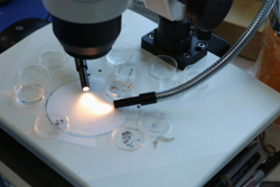
|
Rice University researchers developed bioengineered E. coli bacteria with the adhesive properties of mussels to break down polyethylene terephthalate. By introducing DOPA, a mussel-derived adhesive amino acid, and PET-degrading enzymes into the bacteria, scientists enhanced its ability to cling to and degrade PET effectively. Researchers aim to scale this solution, making it a viable tool for tackling plastic waste worldwide.[Image Credit: © NIAID on Unsplash]
|
Unilever Joins Calls For A Global Plastics Treaty |
|

|
Ed Shepherd, Senior Global Sustainability Manager - Circular Economy, at Unilever says the company, as a key member of the Business Coalition for a Global Plastics Treaty, wants a comprehensive global agreement to address plastic pollution, to complement voluntary industry actions. Such a treaty, Unilever argues, would harmonize global regulations, simplifying operations for businesses while fostering innovation and investment in sustainable packaging solutions. [Image Credit: © LinkedIn Corporation/Ed Shepherd] |
Australians Want Better Support For Compostable Packaging Disposal |
|
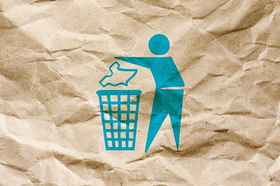
|
Research by Compost Connect and BioPak reveals Australians are eager to dispose of compostable packaging correctly but face challenges from confusing logos and inadequate council support. While 70 percent of respondents prioritize proper disposal, only 20 percent feel councils adequately support composting. Despite this, interest in compostable solutions is growing, with one-third already composting at home. However, just 10 percent recognize compostable logos and many consumers call for clearer visual cues and disposal guidance.[Image Credit: © frozennuch from Pixabay]
|
Paper Refills In Beauty Packaging Are Sustainable But Need Innovation |
|

|
Morrama’s "Maya" line of refillable packaging, developed with China-based PPK, introduces paper-based refill packaging to the beauty industry. It’s used for products like lipsticks and palettes. Jo Barnard, Morrama's founder, says more innovation is needed and existing refills often struggle with recyclability and practicality. The Maya range focuses on paper pulp, partly due to its consumer appeal and recyclability, with hopes to transition to a fully plastic-free system. [Image Credit: © Morrama]
|
LA County Sues Coca-Cola, PepsiCo Over Plastic Pollution |
|
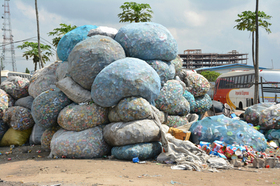
|
Los Angeles County filed a lawsuit against Coca-Cola and PepsiCo, accusing both of contributing to severe plastic pollution and misleading the public about the recyclability of their products. It claims that both companies have portrayed plastic recycling as a solution to plastic waste whereas, in reality, only a small portion of their plastic is recycled, and most recycling results in downcycled, non-recyclable products. LA County seeks civil penalties, an injunction to stop deceptive marketing, and restitution for consumers. PepsiCo and Coca-Cola cite statements from William Dermody, vice president of media and public affairs for the American Beverage Association, who argues that the companies’ bottles are recycled at a rate of 70 percent and are designed to be recycled into bottles containing recycled plastics.[Image Credit: © Ryan Brooklyn on Unsplash]
|
PepsiCo Plastic Pollution Lawsuit Dismissed |
|
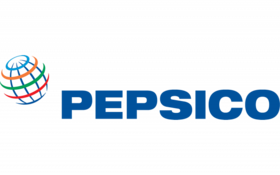
|
A New York Supreme Court judge dismissed a lawsuit, brought by Attorney General Letitia James, accusing PepsiCo of environmental harm through plastic pollution. James’s office alleges that single-use plastic packaging from PepsiCo products contributed to pollution in the Buffalo River and contaminated drinking water, but Judge Emilio Colaiacovo ruled that responsibility for pollution ultimately lies with consumers who litter. Colaiacovo called the lawsuit “policy idealism” and emphasized the need for legislative or executive action to impose such liability on manufacturers.[Image Credit: © PepsiCo]
|
